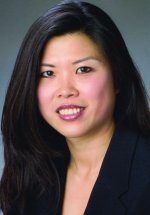An International Corporate Lawyer’s Ambition
 Selena LaCroix, senior counsel for Texas Instruments, began her career in an unusual way: by turning down a highly prized scholarship.
Selena LaCroix, senior counsel for Texas Instruments, began her career in an unusual way: by turning down a highly prized scholarship.
A native of Singapore, LaCroix was interviewed for one of the city-state’s prized Presidential Scholarships to Oxford. But when told she would have to study geography, she turned it down. “I didn’t see many career opportunities in geography,” she said, “and the award would have entailed a long-term commitment to government employment after graduation.”
During her third year in law school in Singapore, seminal intellectual property (IP) legislation was enacted, leading to the introduction of new law-school course offerings. Her subsequent academic exposure to this burgeoning area of legal practice translated to a long-term commitment to IP law once she entered professional practice.
Sensing early that American technology companies were moving aggressively in Asia to protect their hard-won IP, LaCroix focused on the regional enforcement and licensing of IP for foreign multinationals. Her natural facility with language, including English, Mandarin Chinese, Malay and several Chinese dialects, an outgrowth of Singapore’s multiculturalism, enhanced her value to Western companies seeking representation in Asia.
LaCroix’s ambition to qualify among the leading international practitioners of IP law led her to the conclusion that she needed to practice in the U.S.; “the cutting edge of legal practice in technology and corporate commercial practice,” as she puts it. In 1993, she took a position with Gray Cary Ware & Freidenrich in San Diego and Silicon Valley, working in the firm’s products, technology and multimedia section. This opportunity allowed her to build on her experience in IP in Asia, providing her with “a perspective somewhat unique in international legal practice.”
After two years with Gray Cary, LaCroix joined Texas Instruments (TI) as a mergers-and-acquisition (M&A) attorney, turning her attention to semiconductors, which are used in a multitude of applications, including wireless and broadband communications. “TI afforded me the opportunity further to enhance and develop my legal skills in technology licensing and the structuring of international strategic alliances,” she said, “and permitted me to leverage my international legal background.”
LaCroix quickly moved up the corporate ranks of TI, becoming Semiconductor (ASP), Broadband and Imaging Counsel in 1997; Senior Regional Counsel for Asia Pacific in 1999; and most recently in 2003, Senior Counsel for Worldwide Analog and Manufacturing.
“I try to keep in my mind a picture of the various elements and interlinkages of my practice,” she said, explaining her rapid advancement in the field, “and I focus on moving each element ahead through consistent study and interaction with other experts in my field.” This means reading application legal publications, giving seminars on legal matters involving M&A, China and the World Trade Organization, IP protection and technology transfers, and attending conferences and continuing education seminars.
As a minority in America, LaCroix has found that she has been able to use her uniqueness to her advantage. She feels that her experience has shown that the minority experience can represent strength rather than a weakness requiring special consideration.
One of her current challenges is the rampant counterfeiting of technology in China, a country LaCroix acknowledges will be a huge market in the future. As senior counsel for TI, LaCroix will help its business partners in Asia become responsible partners in the 21st century’s globalized economy. It will take vision and leadership, and an understanding of Asian culture, attributes that Selena LaCroix possesses in abundance.
Tom Calarco is a freelance writer from Schenectady, N.Y. His book, The Outpost to Freedom, a History of the Underground Railroad in Upstate New York, is set for publication this year.
From the July/August 2003 issue of Diversity & The Bar®
